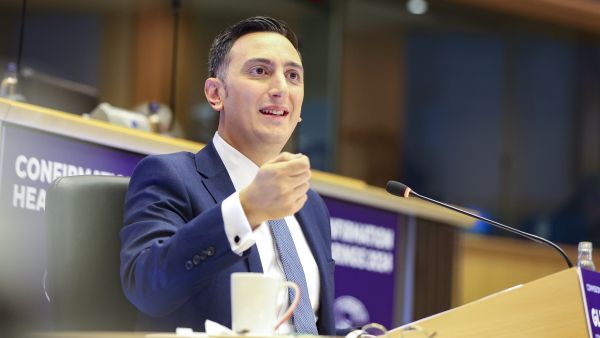During a joint vote of the European Parliament's committee on culture and education and the committee on employment and social affairs today, the Socialists and Democrats led a majority and asked the European Commission to come up with a proposal to improve the social and professional situation of artists and workers in the cultural and creative sectors.
The S&Ds convinced the other political groups of the need to put an end to the precariousness, unpredictable incomes and weak or, in some cases, totally absent social security coverage of artists. According to the S&D Group, this will possible on European level only when there is an established framework of legislation ensuring workers in cultural and creative sectors have fair access to social entitlements throughout the EU.
Domènec Ruiz Devesa – S&D MEP and European Parliament's negotiator on the matter in the EP’s committee on culture and education – said:
“Culture is at the core of European DNA – this is what keeps the diversity and the identity of our Union alive. We owe it to our artists and everyone employed in the cultural and creative sectors (CCS). The level of precariousness in the sector has been dire for years, but the Covid-19 crisis has shown that the situation for CCS professionals is simply unsustainable.
“We, the Socialists and Democrats, believe it is high time to take measures; and we do it with the report for legislative initiative we adopted today. No one should work in precarious working conditions and this has to apply to all workers without exception. For this reason, we ask the European Commission to propose legislative instruments to bring the cultural and creative sectors out of the grey zone of social policy in Europe.
“Our Group has long been calling for the introduction of social conditionality throughout EU financial instruments. This means EU funding would be available only for those projects where the social rights of artists and cultural professionals are fully respected.
“We also believe the abusive practice of buy-out contracts has to stop. Our Group believes that better mobility of European artists will only be possible if future EU legislation includes provisions ensuring their contracts fully comply with all labour and social obligations under Union and national law or collective agreements.”
Daniela Rondinelli – S&D MEP and negotiator on the matter in the European Parliament’s committee on employment and social affairs – said:
“Discontinuity, precariousness, poverty, lack of social protection. Artists and creative workers and professionals are highly vulnerable to rights’ violations. Today, in the committee on employment and social affairs, we voted on an own initiative opinion to provide concrete answers for artists and all workers in the cultural and creative sectors.
“Through this resolution, we want to reiterate the need for fair and adequate wages that have to be proportionate and appropriate to their levels of education, skills and professional experience. Moreover, it is very important that each EU member state ensure the greatest level of collective bargaining coverage and provisions that guarantee social security protections.
“As Socialists and Democrats, we believe that the European Union needs to take a step forward in building a strong social dimension and, again today, we have given an important signal for greater efforts to strengthen the working conditions of artists and creative workers through a binding European legislative act.
“Increased financial support for the sector, more investment in upskilling, lifelong learning programmes and adequate structure mechanisms to support equal opportunities for all European workers are all priorities that we managed to include in the text – approved today by a large majority.
“Furthermore, we firmly believe that cultural cooperatives and self-managed organisations represent innovative forms of association that can protect all workers. For this reason, I have insisted not only on recognising the need for greater support for cooperatives but also for equal recognition, so that their specificities are taken into account when initiatives are proposed. This will ensure greater transparency and their full participation in decision-making processes.”










